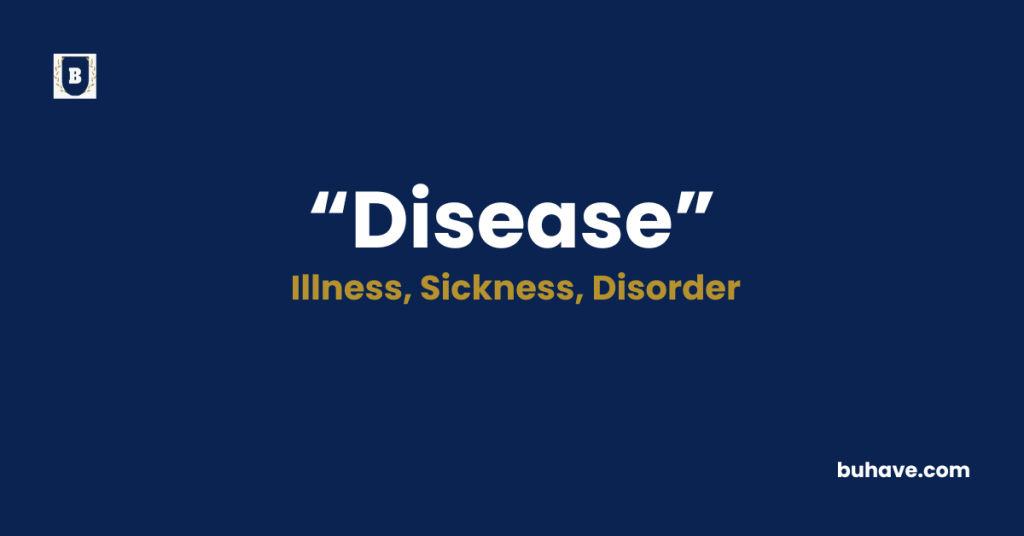The word disease (Noun) refers to a disorder or malfunction in a living organism that disrupts normal bodily functions. In this guide, you’ll learn the full definition, synonyms, antonyms, etymology, and real-life examples of how to use disease correctly in sentences.
Disease Explained in Depth
A complete and detailed guide to the word disease, including meaning, definition, examples, etymology, synonyms, and antonyms.
Meanings of Disease
Disease is an abnormal condition that negatively affects the structure or function of a part or all of an organism. It often manifests through specific signs and symptoms and can be caused by pathogens, genetic mutations, lifestyle factors, or environmental conditions.
Definition
A disease is a pathological condition of a body part, organ, or system resulting from infection, genetic defect, environmental stress, or other causes, and characterized by identifiable symptoms and signs. Diseases may be acute or chronic, infectious or non-infectious, and mild or life-threatening.
Etymology
The word disease originates from Middle English disese, from Old French desaise, meaning “lack of ease.” It is a combination of the prefix “dis-” meaning “not” or “apart” and “ease.” Over time, it evolved to refer to conditions that disturb health or well-being.
Example Sentences
- Heart disease remains one of the leading causes of death worldwide.
- The doctor diagnosed her with a rare genetic disease.
- Preventive care can reduce the risk of many chronic diseases.
Disease Synonyms
- Illness
- Ailment
- Sickness
- Condition
- Disorder
- Malady
- Affliction
- Infection
- Pathology
- Infirmity
Disease Antonyms
- Health
- Wellness
- Fitness
- Vitality
- Robustness
- Recovery
- Healing
- Soundness
- Strength
- Well-being
FAQs about Disease
Here are some frequently asked questions (FAQs) about the word “Disease”
1. What does “disease” mean?
It refers to a condition that impairs normal functioning and is typically marked by specific symptoms and signs.
2. What causes diseases?
Diseases can be caused by infections, genetics, environmental factors, poor lifestyle habits, or unknown causes.
3. Are all diseases contagious?
No, only infectious diseases caused by pathogens (like bacteria and viruses) are contagious. Non-communicable diseases, like diabetes or cancer, are not.
4. What’s the difference between illness and disease?
“Disease” is a medical term for a diagnosed condition, while “illness” can refer to the personal experience of feeling unwell.
5. Can diseases be cured?
Some diseases can be cured, others can only be managed or treated to reduce symptoms.

















